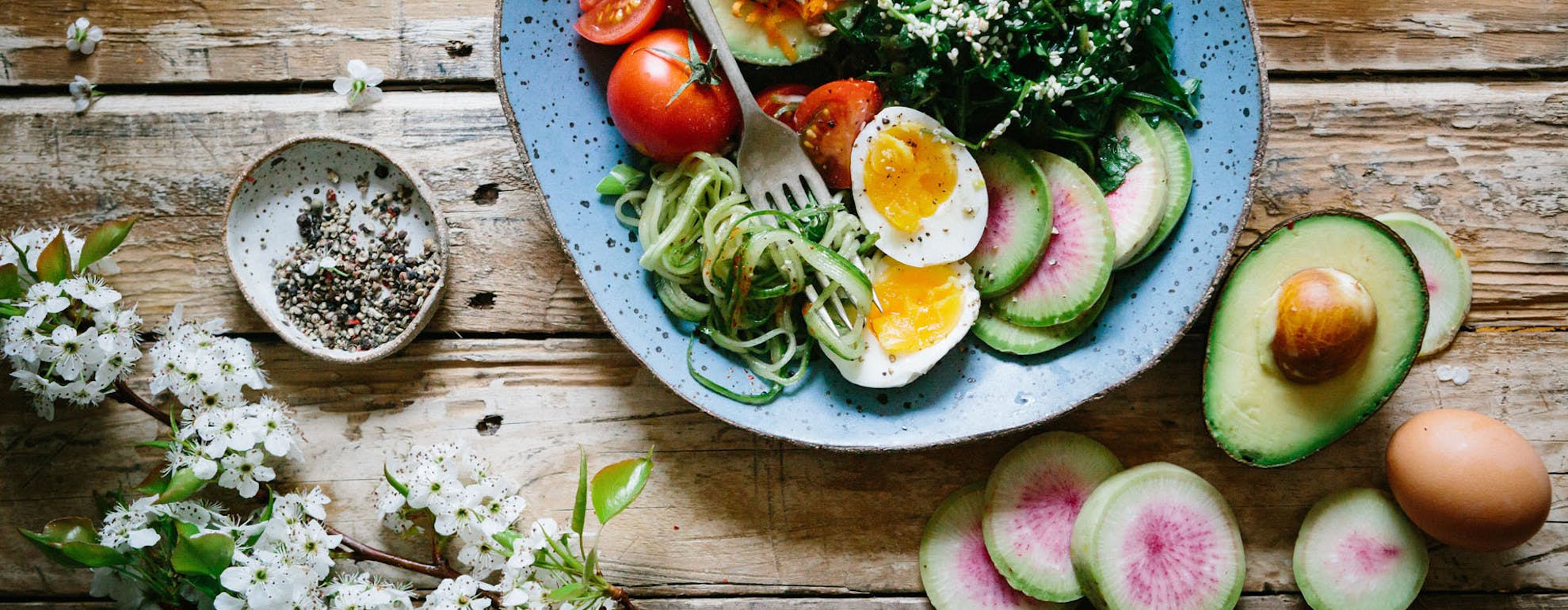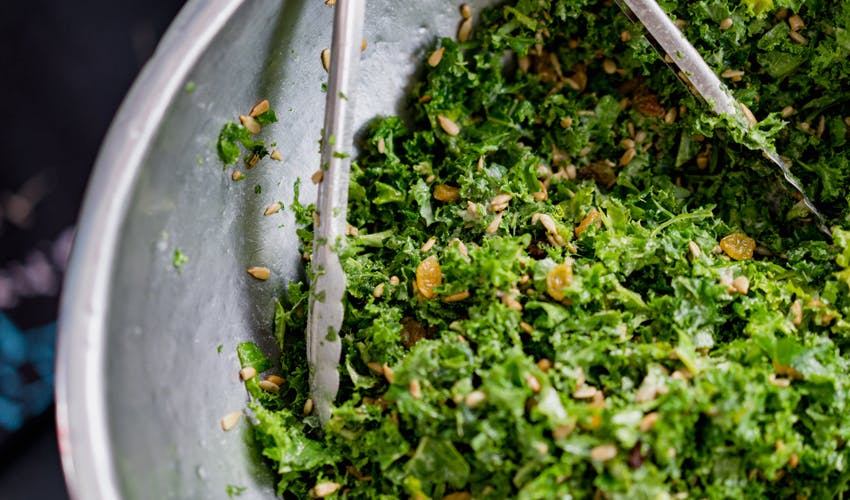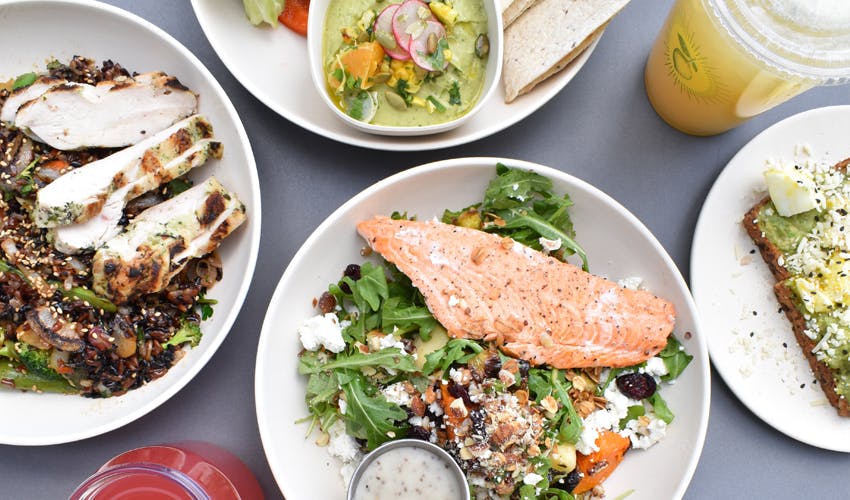
Nutrition
Why is Blood Glucose Important for Runners
In the first of a series of informative articles, Registered Nutritionist (mBANT) Helen Lambert explains why blood glucose is important for runners and how it affects our mood and impacts performance.
ㅤ
RIDING THE BLOOD GLUCOSE ROLLERCOASTER
As runners it’s tempting to think that what we eat doesn’t matter too much because we get to “run it all off”. In truth, the reality is more complicated and it’s important to make sure we are getting certain things right to stay healthy and happy.
One of the keys to physical and mental wellbeing as a regular runner is to eat in a way which keeps our blood glucose (sugar) levels stable.
When blood glucose levels fluctuate we end up feeling exhausted and cranky. Low levels of blood glucose trigger the release of cortisol, our primary stress hormone. Cortisol is also released in response to high-intensity or high-load training meaning some of us might be exposed to quite a lot of it. Chronically-elevated cortisol can lead to fatigue, increased risk of injury and slowed recovery times. Add in the energy slumps that can come from a blood glucose rollercoaster and running performance can’t help but suffer.
ㅤ
HOW CAN YOU TELL IF YOUR BLOOD GLUCOSE LEVELS ARE NORMAL?
There are some great home gadgets available which monitor blood glucose levels but, unless you’re diabetic, going on how you feel is the best indicator. Signs that your blood glucose levels may be out of whack include sugar cravings, hangry moments, energy slumps, a need to eat frequently, a reliance on sugar or caffeine to keep going, disturbed sleep and night sweats. If any of this sounds like you, then it is definitely time for a diet rethink.
ㅤ

ㅤ
WHAT EXACTLY IS BLOOD GLUCOSE?
Dietary carbohydrates get broken down into glucose (sugar) which is absorbed and released into our blood stream. Blood glucose refers to the amount of glucose we have circulating in our blood stream at any given time. Our body works hard to keep blood glucose levels within a safe zone. Too much blood glucose is toxic to our cells, too little and we leave cells starved of their preferred source of energy.
Our bodies are amazing but not perfect. When we eat food which spikes our blood glucose the body panics and in the rush to bring glucose levels down it can hoover up too much, leading to temporarily-low glucose levels. Left to its own devices the body will eventually autocorrect (we store glucose as glycogen in our liver and muscles), however, before that happens, if blood glucose levels drop too low, we feel awful. It’s at this moment that we often reach for caffeine or something sweet as a pick me up. This is how we can get caught up in a rollercoaster of blood glucose highs and lows.
ㅤ
WHICH FOODS CAN LEAD TO A BLOOD GLUCOSE SPIKE?
Broadly speaking, foods which can spike blood glucose include fast-release carbohydrates such as sugar, sweets, biscuits, cake, white bread, white pasta, white rice, white potato, crisps, fruit juices, fruit smoothies, some energy drinks and caffeine.
For most people, foods and nutrients which don’t spike blood glucose include high-protein foods (fish, meat, eggs, legumes, nuts, seeds and dairy), good fats, vegetables, wholegrains and low-sugar fruits (berries, apples and pears). Eating protein and good fat with every meal and snack can also help to minimise blood glucose spikes. However, there are caveats.
ㅤ

ㅤ
WE ARE ALL NUTRITIONALLY UNIQUE
This is where the nutrition science gets more complex. The latest research is demonstrating that we all have a different metabolic response to the foods that we eat, even in genetically-identical twins. This means that the old way of looking at carbohydrates in terms of fast release (simple carbs, or high glycaemic load) or slow release (complex carbs or low glycaemic load), doesn’t work for everyone. Some people can eat white bread and see no elevations in blood glucose while others might eat a wholegrain sourdough but still get a blood glucose spike. Interestingly we can also have a different metabolic response to the same food depending on what time of day we eat it – amazing and frustrating in equal measure!
ㅤ
WHAT SHOULD I EAT?
Despite the minor complication of us all being completely metabolically different we do have to begin somewhere and the Mediterranean diet is proving to be a good start point. This means basing meals around plenty of colourful vegetables and fruits, fish, poultry, eggs, beans, pulses, wholegrains, nuts, seeds and olive oil. Aim to “eat the rainbow” in colour and variety. Always make sure to include protein and good fat with meals and snacks. This might look like eating a small handful or raw nuts with an apple, pairing hummus with veg sticks or tuna and olive oil with oatcakes.
For most people, this way of eating supports healthy blood glucose levels whilst also providing plenty of additional nutrients for optimal health, energy and wellbeing. And remember we are not aiming for perfection, getting this right most of the time is good enough. After all, what fun is life without cake and coffee?
ㅤ
Discover more about Helen Lambert Nutrition on her website.
ㅤ
Photos: Credit to Unsplash
Keen to learn more about fuelling for performance and adventures? Then check out our Nutrition category for more handy tips, advice and recipes.
Welcome
Welcome to the SportsShoes Nutrition Hub! We’ve teamed up with the experts to bring you the very best advice on the best foods to fuel you and your adventures.